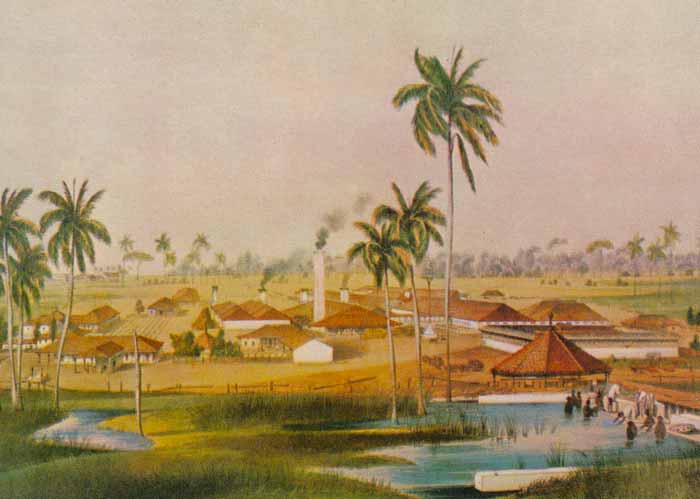
A 19th century postcard of Cuban sugar mills
An Object of Transcendent Importance: A Ripe Fruit
The US was firmly opposed to the independence of Cuba, "strategically situated and rich in sugar and slaves" (Gleijeses). Jefferson advised President Madison to offer Napoleon a free hand in Spanish America in return for the gift of Cuba to the United States. The US should not go to war for Cuba, he wrote to President Monroe in 1823, "but the first war on other accounts will give it to us, or the Island will give itself to us, when able to do so." Secretary of State John Quincy Adams described Cuba as "an object of transcendent importance to the commercial and political interests of our Union." He too urged Spanish sovereignty until Cuba would fall into US hands by "the laws of political...gravitation," a "ripe fruit" for harvest. Support for Spanish rule was near universal in the Executive branch and Congress; European powers, Colombia, and Mexico were approached for assistance in the endeavor of blocking the liberation of Cuba. A prime concern was the democratic tendencies in the Cuban independence movement, which advocated abolition of slavery and equal rights for all. There was again a threat that "the rot would spread," even to our own shores.
Year 501, Chomsky